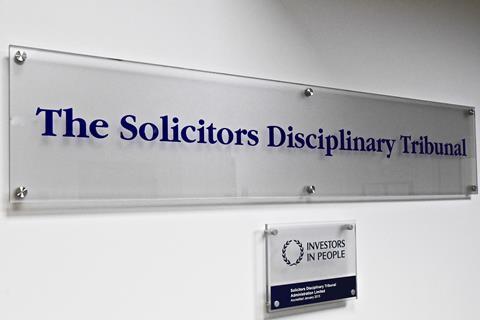The Solicitors Disciplinary Tribunal has warned that fairness and transparency would be lost if the Solicitors Regulation Authority goes ahead with a massive increase in its fining powers.
In an unusually forthright response to the SRA’s consultation, the tribunal says plans to hike the threshold from £2,000 to £25,000 would increase the risk of a miscarriage of justice. The SDT also argues that the proposed fining powers could erode transparency by preventing cases coming before a public hearing.
The response states: ‘SRA internal decisions are made without public or press scrutiny. Although the SRA publishes its decision notices in relation to most internal sanctions, its decisions are far shorter than a tribunal judgment and do not contain comparable explanation and detail.'

If the SRA receives greater fining powers 'the attendant diminution in the transparency of decision making and detailed reasoning would be in neither the public nor the profession’s interest,’ it states.
Any allegation of professional misconduct should be referred for full consideration, the SDT submits, with the SRA limited to handling technical matters or administrative errors.
As such, it recommends that the SRA should be able to impose a maximum £7,000 fine against an individual, taking account of the rate of inflation since the introduction of the current position by the Legal Services Act 2007.
A £25,000 limit would create the risk that defendants with limited resources such as small practitioners would feel compelled to agree a fine simply to avoid proceedings, even if they dispute the allegations.
There is also the risk that big firms or rich individuals would agree a fine to avoid the scrutiny of public proceedings.
‘The tribunal does not consider that any form of ‘plea bargaining’ in the solicitors’ profession is appropriate given the importance of safeguarding the public’s trust and confidence in the profession as a whole,’ the response adds. It would be 'wholly inappropriate for there to be any possible perception that wrongdoing in the profession is being "swept under the carpet" by a swift privately agreed financial levy rather than to be subject to transparent public scrutiny.’
The SDT also questions why the regulator made its case based on reducing delays to hearings. The response points out that last year 96% of cases were listed for substantive hearing within six months of issue and 70% of cases were determined.































21 Readers' comments